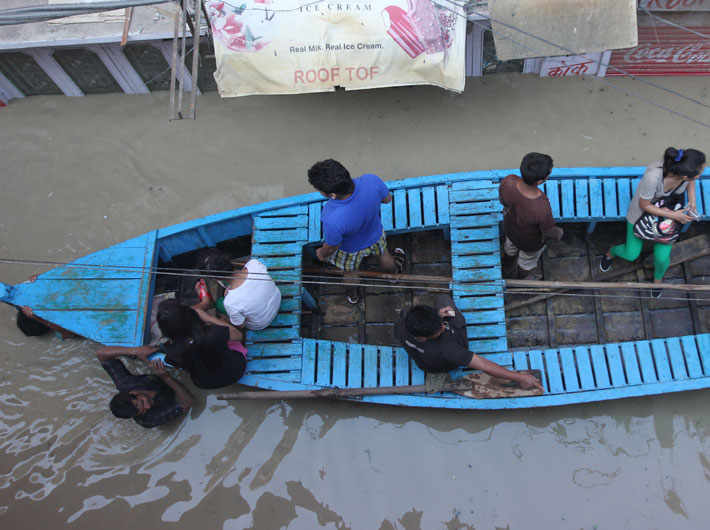What Uttarakhand is witnessing today will continue to occur, and more frequently, unless we check the spate of unregulated construction in ecologically fragile zone, say experts
The hill states of Uttarakhand and Himachal Pradesh have once again been hit by the nature’s fury. According to the latest report, more than 150 people have died and between 60,000 and 70,000 are still stranded in various parts of the region.
MUST READ: Be warned: Uttarakhand rains not that unusual
As the government grapples with the magnitude of the “tsunami-Like” havoc caused by early-monsoon flash floods and landslides in the hills in its effort to evacuate stranded people, Governance Now spoke to experts on ecology on the reason behind the tragedy. The unanimous view among them was that the scale of disaster will continue to increase unless we check the spate of unregulated construction in the ecologically fragile zone.
“Let the rivers be, and they won’t harm you,” as one of the experts said.
Expertspeak – edited excerpts:
Manoj Mishra, Yamuna Bachao Andolan
"We cannot blame the river. If you encroach its space, it will hit back. And the rivers have hit back hard. There are two plausible reasons for this. One is man’s greed that has resulted into construction of multi-storied houses and hotels on the riverbank and, second, the government’s inability to regulate these constructions.
As far as regulations are concerned, we had proposed a notification on river regulation zone on which the ministry of environment and forests (MoEF) had started discussion in 2002. Ten years on, there is no sign of the notification yet. This lack of will in the government cannot be explained. Even though the incident keeps on repeating year after year there is absolutely no effort on part of the government to take any remedial measures.
The present incident reiterates the point environmentalists have been making for some time now: any kind of construction should not take place in an ecologically fragile zone like Uttarakhand. Let the river be, and it will not harm you."
Himanshu Thakkar, South Asia Network on Dams, Rivers and People
"When a similar disaster struck last year, the state disaster management unit (of Uttarakhand) said in its report that roads and houses were constructed on space encroached from the river, and that such kind of construction should stop. Unfortunately, the government did not take into account its own report.
Another problem is, we have not put in place the required infrastructure for predicating the nature’s fury on such a scale. So we are taken by surprise whenever such incidents take place.
Besides, we do not go for credible environment impact assessment for projects that we undertaken in ecologically fragile region.
Anil P Joshi, head, Himalayan Environmental Studies and Conservation Organisation (an NGO working on environmental issues in Uttarakhand)
Disaster of such scale is the result of rampant urbanisation and unscrupulous constructions. What has happened is the result of the nature’s fury. In Dehradun, the local authorities have resorted to closing all the canals to build roads in the city. In such a scenario it is only natural that in case of torrential rain, the city will be flooded.
The problem is, people in the national disaster management authority (NDMA) do not have any relevant experience on the subject. In such a scenario how can the agency be expected to come out with a policy on disaster? The state disaster management unit, meanwhile, is short of manpower.

